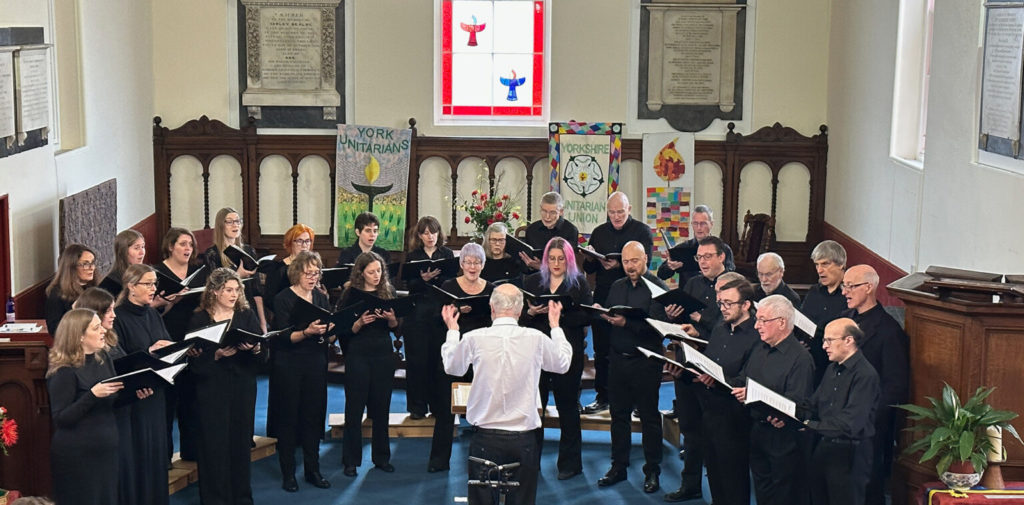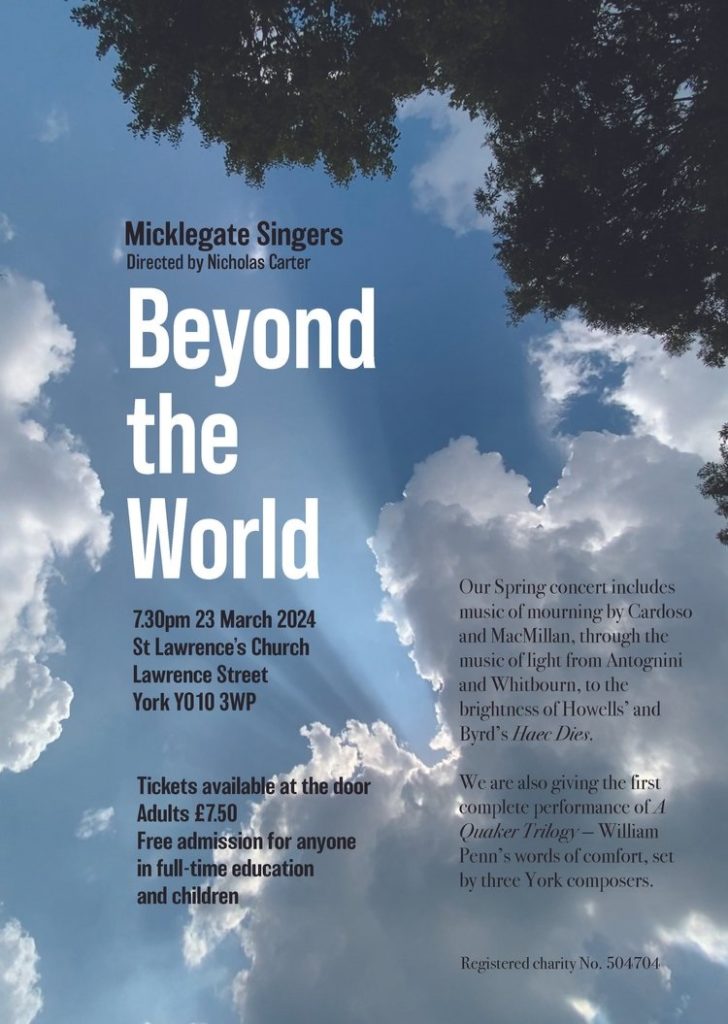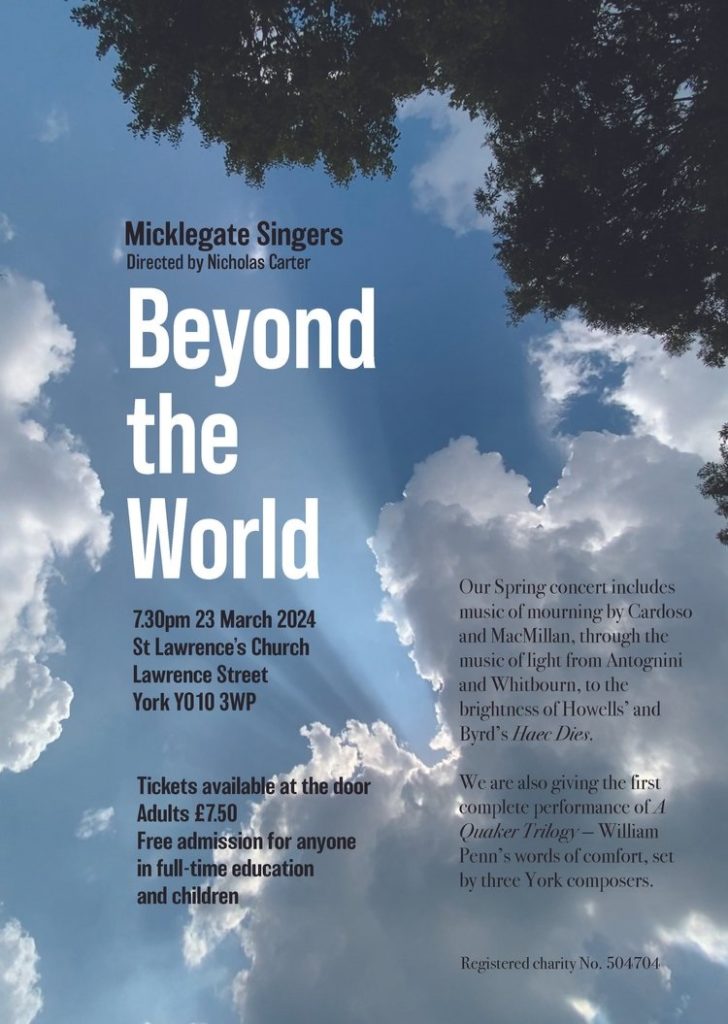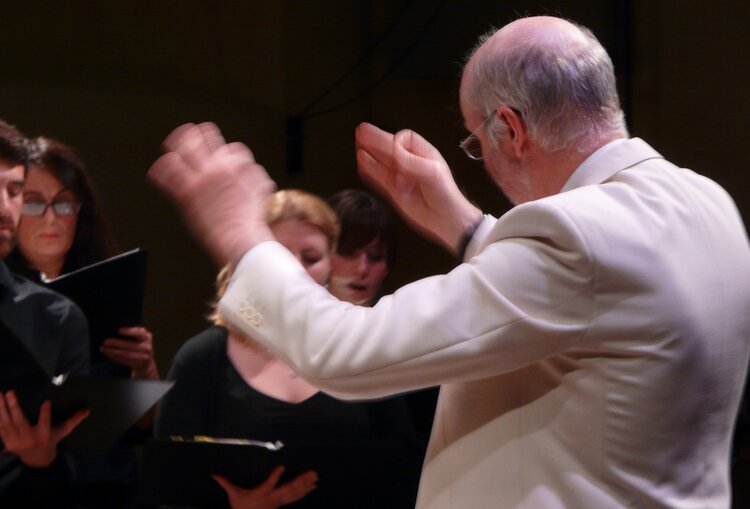
Nicholas Carter: Leaving his post as Micklegate Singers’ musical director after November’s concert
LONG-STANDING York conductor Nicholas Carter is to hang up his baton after 25 years as musical director of the Micklegate Singers.
Applications for the post are welcomed until Friday, July 18, with full details available at www.micklegatesingers.co.uk. Interviews and auditions will be held on September 25 and/or October 2.
The choir began in 1964, becoming a key part of the York music scene. Since 2000, its characteristic programming of exciting new choral music, alongside masterpieces from the 16th century, has been curated carefully by Mr Carter.
On reaching his silver jubilee with the choir, however, he has decided to bow out after November’s winter concert, hence the search for a new director to start in January 2026.
Applications are encouraged from enthusiastic musicians of all backgrounds with experience of directing adult choirs.
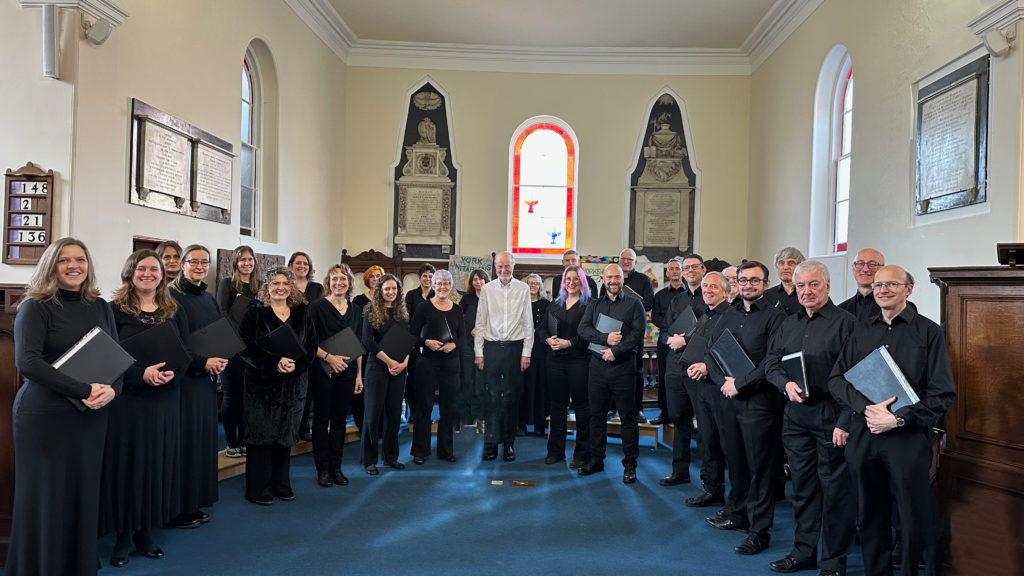
Nicholas Carter, centre, with the Micklegate Singers choir members
The Micklegate Singers are an auditioned, mixed-voice chamber choir, whose 30 to 36 members rehearse weekly on Thursday evenings during school terms and perform three or four times per year in York.
The choir sings an ambitious repertoire of mostly 16th century and 20th/21st century works, usually unaccompanied, ranging from Tallis, Byrd and Guerrero, via Stanford and Parry, to Eric Whitacre, Cecilia McDowell, Paweł Łukaszewski and Laura Mvula, complemented by works commissioned from new composers.
“We’ve been so lucky to have a musician of Nick’s calibre leading us for such a long time,” says Micklegate Singers’ chair, Sarah Sketchley. “He will be a hard act to follow, but we are excited to see who might come along and take us on the next part of our journey.
“We are a friendly bunch, and we love getting our teeth into really rewarding choral repertoire, so this is a great opportunity for the right person.”
The choir has been in the public eye with a set of commissions by young composers from the University of York, leading to a performance and panel discussion chaired by Nicola LeFanu at the 2024 York Festival of Ideas.
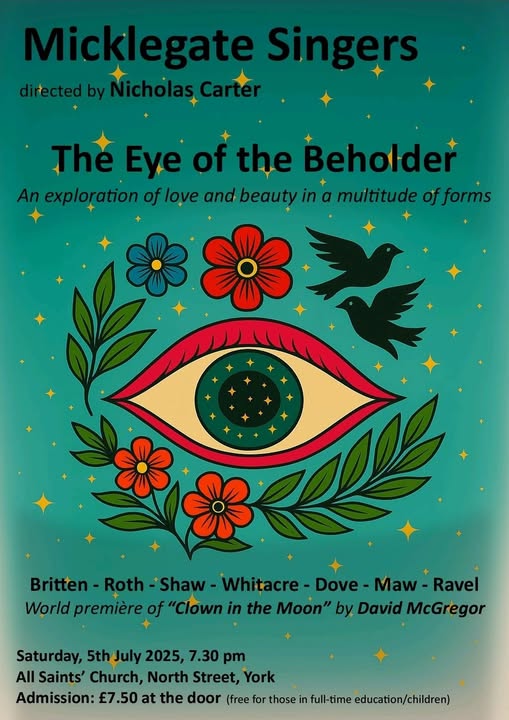
The poster artwork for Micklegate Singers’ July 5 concert, The Eye Of The Beholder, at All Saints’ Church, North Street, York
Mr Carter, formerly director of music at Queen Mary’s School, Topcliffe, near Thirsk, has cherished his time with the choir: “I am always impressed by the sheer variety of music that I can face the choir with and the standard that they reach in performance despite being amateurs,” he says.
“The composer William Byrd was a keen advocate of the health benefits of singing, and I always find that I leave the rehearsal feeling younger than I did at the beginning!”
The choir’s next concert, The Eye Of The Beholder, takes place at All Saints’ Church, North Street, York, on Saturday, when the 7.30pm programme comprises works by Britten, Roth, Shaw, Whitacre, Dove, Maw, Ravel and the world premiere of David McGregor’s Clown In The Moon. Admission is £7.50 on the door; free for those in full-time education or children.
Former Micklegate Singers members are invited to join Mr Carter’s silver anniversary celebrations after the choir’s winter concert on November 29.
For more information, applicants should visit www.micklegatesingers.org.uk. For any questions or to arrange an informal conversation, please email choir.chair@micklegatesingers.co.uk.

